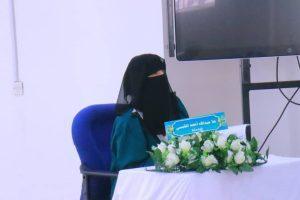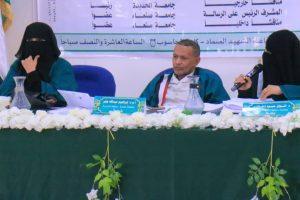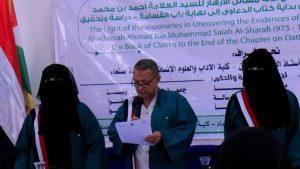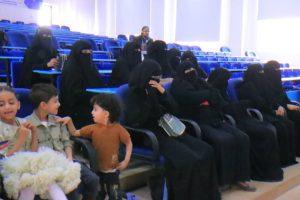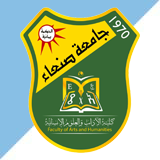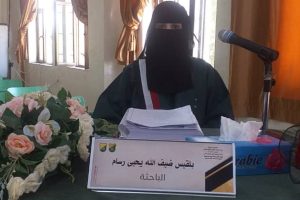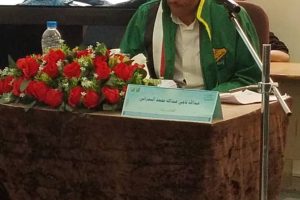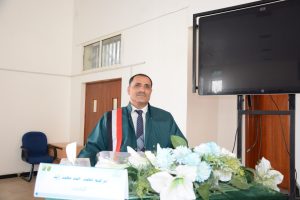Public MA Viva-Voce Examination of Ms. Ola Abdullah Ahmed Al-Kabsi, from the Department of Islamic Studies, Faculty of Arts & Humanities – Sana’a University
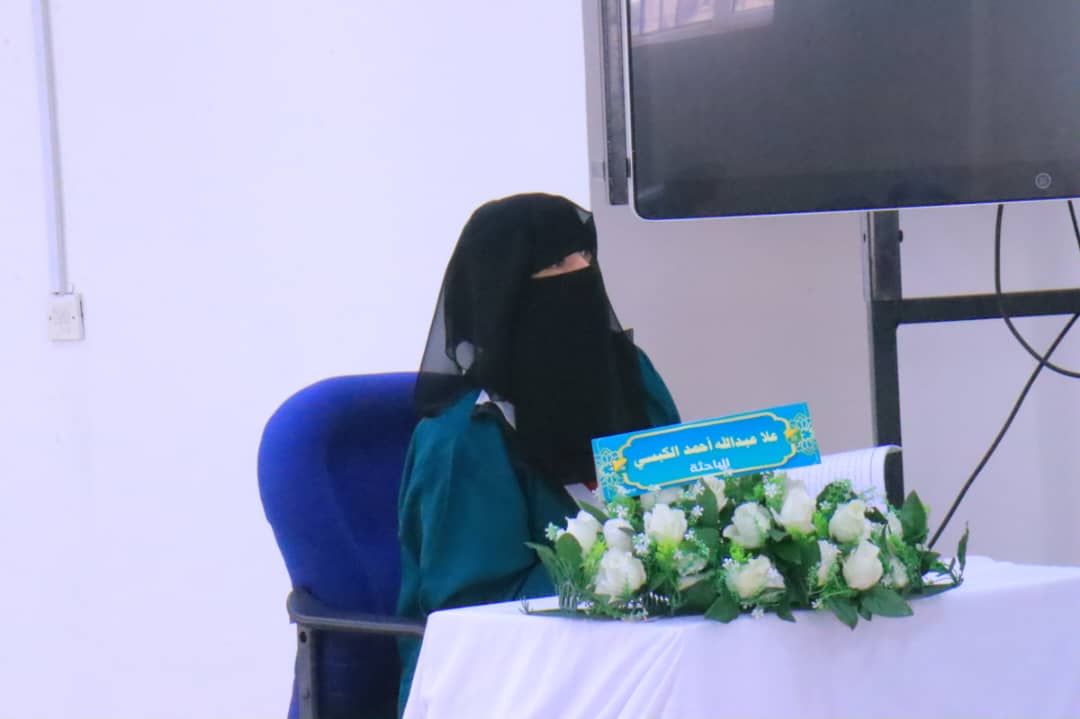
Ms. Ola Abdullah Ahmed Al-Kabsi has awarded the MA Degree with a commendable score of 95%, achieving an ‘excellent’ along with a recommendation for the publication and dissemination of her work within academic institutions, majoring in Jrisprudence and Its principles, from the Department of Islamic Studies, Faculty of Arts & Humanities – Sana’a University. Her thesis, titled “The Light of the Visionaries in Uncovering the Evidences of the Issues of Al-Azhar by Sayyid Al-Allamah Ahmad bin Muhammad Salah Al-Sharafi (975 – 1055 AH) – From the Beginning of the Chapter of Claims to the End of the Chapter on Oaths: Study and Verification,” was defended on Tuesday, Ramadan 25, 1446 Hijri corresponding to March 25.
The Viva-Voce Committee, which was formed based on a resolution issued by the Post-Graduate Studies and Scientific Research Council, consisted of the following:
1. Prof. Ibrahim Abdullah Jaber, External Examiner, Al-Hodeidah University, Chair.
2. Prof. Bushra Ali Al-Emad, Main Supervisor, Sana’a University, Member.
3. Dr. Ashwaq Hamoud Al-Makhlafi, Internal Examiner, Sana’a University, Member.
The primary objective of the thesis was to establish the significance of the book “The Light of the Visionaries in Uncovering the Evidences of the Issues of Al-Azhar” as a vital Zaydi text and a comprehensive jurisprudential encyclopedia. This work encompasses the teachings of the Prophet’s family (peace be upon them) and the pronouncements of their imams, while also incorporating perspectives from scholars of various other jurisprudential schools. The researcher proposed several notable conclusions, including:
1. Scholar Ahmad ibn Muhammad Salah al-Sharafi elucidated the evidentiary basis within the text of al-Azhar as articulated by Imam Ibn al-Murtada, aligning with him on numerous points while diverging on certain rulings.
Furthermore, the thesis culminated in several recommendations, which may be summarized as follows: It is imperative for universities and relevant endowments to prioritize the revitalization of Yemeni heritage, particularly focusing on significant Zaydi texts that remain inaccessible to researchers and scholars. The endeavor should extend beyond mere textual revival through verification and highlighting variances among versions; it should also encompass an engagement with the methodologies contained within these texts for both academic and practical application in contemporary life. Additionally, efforts should be made to educate future generations about these methodologies, as this revival of heritage signifies a renaissance for the nation.
The Viva-Voce was attended by several academics, researchers, students, and several colleagues and family members of the researcher.
